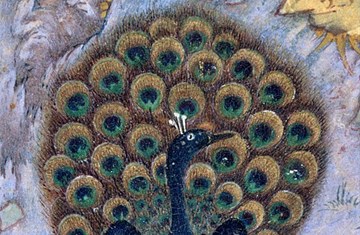Plato, Platonism, and Neo-platonism
Key words: Neoplatonism, Syriac, Plotinus, Plato, Republic, Phaedo, Symposium, Aristotelian, Stoic, neo-Pythagorean, Enneads, Nous (intellect), methaphysics, Platonists, creatio ex nihilo, the World Soul, Laws, Sophist, Timaeus, history of ideas in Islam, al‑Madina al-Fadila (The Virtuous City), Corpus Platonicum, Tandhib al-akhlaq (The Cultivation of Morals), Ibn Miskawayh, Liber de Causis (Kitab al-Khayr al-Mahd), al-Kindi, Ikhwan al-Safa’, al-Farabi, Ibn Sina, al-Sijistani, al-Kirmani, Suhrawardi, Ibn ‘Arabi, Mulla Sadra.
Abstract:The school of philosophy that took shape in the 3rd century CE, based on the teachings of Plato and the commentators on his work, received a new intellectual impetus when its texts became available to scholars in the Islamic civilization through translations from Greek to Arabic, starting from the 9th century CE. Philosophers and thinkers in Islam assimilated this philosophical legacy, and innovatively expanded the theoretical and practical applications of its ideas, as well as brought new directions to its conceptual unfolding, which resulted in significant intellectual contributions, particularly in philosophy and ethics.
Author

Professor Nader El-Bizri
Nader El-Bizri is Professor of Philosophy and Director of the Civilization Studies Program at the American University of Beirut. He has previously taught at the University of Cambridge, the University of Nottingham, and the University of Lincoln. He is also affiliated with The Institute of Ismaili Studies in London and the Centre National de la Recherche Scientifique in Paris.










